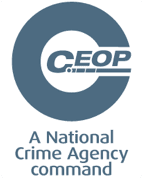Life at Scarborough TEC
About Us
Visit
News & Events
Contact
Scarborough TEC is committed to safeguarding and promoting the welfare of students and expects all staff, volunteers and students to share this commitment.
All of our staff, volunteers and contractors must comply with our college’s Safeguarding Policy and Guidance. This applies to all our students, particularly those who are children (aged under 18) or vulnerable adults. The key objectives of the policy and guidance are to:
All Scarborough TEC staff and volunteers have a duty of care to ensure that any students who may be experiencing abuse or harm in college, at home or in relationships have been referred to a member of staff with designated safeguarding responsibilities.
Monday to Thursday: 8.30am – 5.00pm
Friday 8.30am: 4.30pm
Duty Safeguarding Contact Number: 07795 612116

Safer North East Lincolnshire – Local safeguarding children’s board, dedicated to the safety of children. |
Counter Terrorism – Information on Terrorism and where to report suspicious behaviour. |
Sexual Health Services – Referrals can be made over the phone or via the drop-in service. More information can be found on this link. |
More information can be found on the below link.
nelincs.gov.uk |
If you are looking to gain further information about safeguarding at the TEC Partnership, please visit https://tecpartnership.com/safeguarding/
Success Coaches are here to help you with any aspect of your student life, including any issues or concerns that you may have.
A Success Coach will be allocated to every full-time learner and will be responsible for assisting with pastoral support, academic progress and overall welfare while offering guidance throughout your time at Scarborough TEC. All learners will have regular meetings with their Success Coach to review progress and set targets
that will help towards both short-term and long-term goals. These meetings are also a good opportunity to discuss any additional support that you may require and can include:
Success Coaches can also support learners with their chosen progression route, whether that is continuing further education, applying for university, apprenticeships or employment. Your Success Coach will deliver weekly group tutorial sessions for your class, which will cover a wide range of topics relating to your personal development.

















